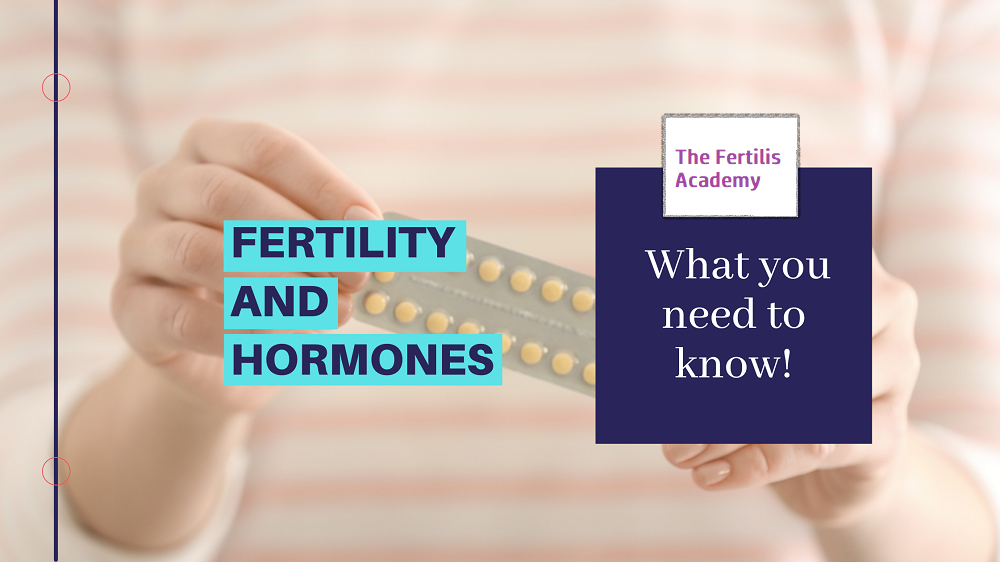
The human reproductive system, both male and female, is controlled by a set of hormones. These hormones are involved in regulating reproductive organs, enabling them to maintain fertility. Particularly in women, these reproductive hormones are a deciding factor in whether or not an egg grows and matures in the ovary, the chances of formation of an embryo, and its implantation in the uterus. Similarly, in males, if there is an imbalance of reproductive hormones infertility may result. Majority of the infertility problems are caused if this delicate balance of reproductive hormones is disturbed.
During the infertility treatment, the fertility specialist will first check for these hormonal imbalances, as it is one of the major reasons for infertility across the globe. Hormones that control ovulation and implantation of an egg are follicle-stimulating hormone (FSH), estradiol (E2), luteinizing hormone (LH), anti-mullerian hormone (AMH), and progesterone. Testosterone is one of the important hormones in males along with FSH and LH. Other hormones that can interfere with ovulation are androgens, prolactin, and thyroid hormones.
Let us read on to learn more about these fertility hormones and some common infertility problems associated with the imbalance in their levels.
Follicle-stimulating hormone (FSH): This hormone which is released by the pituitary gland, controls the growth and maturation of the follicle in the ovary. High production of this hormone indicates poor quality of follicles and if FSH is produced in low amounts there is an irregularity in ovulation or anovulation.
Luteinizing hormone (LH): LH is produced by the pituitary gland and controls the release of the follicle by stimulating the ovaries which thereby triggers the production of progesterone. Women with the polycystic ovarian syndrome (PCOS) are likely to have too much of this hormone.
Who needs to be tested for FSH/LH?
Estradiol (E2): This hormone is released by the follicles growing in the ovaries, which in turn is responsible for the thickening of the endometrium. Low levels of E2 results in a thin endometrial lining which hampers the implantation of an embryo.
Who needs to be tested for E2?
Its relation with FSH & LH levels gives an idea of how the patient is going to respond to the stimulation protocols. The levels are checked on day 2 of the menstrual cycle.
Progesterone: Progesterone is produced in ovaries after the spike of LH during ovulation. This hormone helps in the implantation of the embryos in the uterus and the maintenance of the pregnancy. Lower levels indicate anovulation.
Who needs to be tested for Progesterone?
Thyroid hormone: An imbalance of reproductive hormones can be the result of hyperthyroidism or hypothyroidism.
Who needs to be tested for thyroid hormone?
All patients need to get their thyroid function test evaluated by getting a TSH done. The IVF cycle can only be started with normal thyroid function and it is also necessary for the normal development of the fetus’s brain during pregnancy.
Prolactin: A high prolactin can lead to irregular periods, amenorrhea, galactorrhoea and oligospermia in males.
Who needs to be tested for Prolactin
Anti-mullerian hormone (AMH): AMH is produced by the ovarian follicles and thus is suggestive of the woman’s ovarian reserve. Low serum levels of this hormone indicate poor or depleting egg supply, whereas higher levels are indicative of hyper responders & polycystic ovarian syndrome (PCOS).
Who needs to be tested for AMH?
AMH needs to be done in all patients who are undergoing controlled ovarian stimulation to get an idea about the prognosis, the stimulation protocol, and the type and dose of gonadotropins.
Testosterone: Testosterone is one of the most important hormones of the male reproductive system. Mainly it is produced by the Leydig cells of the testes and some amount is produced by the adrenal glands. Functionally it plays an important role in the development of male reproductive organs, facial hair, and the overall development of the body after puberty in men. The levels of this hormone in men peak during adolescence and remain constant during adulthood. If the levels of testosterone are low in the body it leads to poor sperm counts, erectile dysfunction, lower BMI, and decreased muscle strength.
Who needs to be tested for testosterone
Men with
Causes and common signs of hormonal imbalance:
Some of the most common reasons for hormonal imbalance that may affect fertility in women and men is an unhealthy lifestyle which includes –
Symptoms of hormonal imbalance are different for every individual. Different women and men may have severe to moderate symptoms whereas few individuals may face very mild to no signs of imbalance at all.
Signs of hormonal imbalance that affect fertility are –
Testing and treatment of hormonal imbalance:
All fertility hormones can be detected via simple urine or blood tests. Fertility hormonal profile determines whether these hormones are in excess, or their levels are depleting. The hormone testing helps the fertility specialist to choose medications and give appropriate treatment options to treat infertile couples or even individuals who are not trying to conceive. Hormonal imbalance can be treated by regulating the menstrual cycle, balancing thyroid function, inducing ovulation, and getting the hormonal levels back to normal. Many fertility specialists along with medications always prescribe lifestyle changes that account for many infertility issues.
Monitoring of hormones during controlled ovarian stimulation, evidence-based.
Keep following The Fertilis Academy for the more such informative blogs.
Please share your valuable inputs